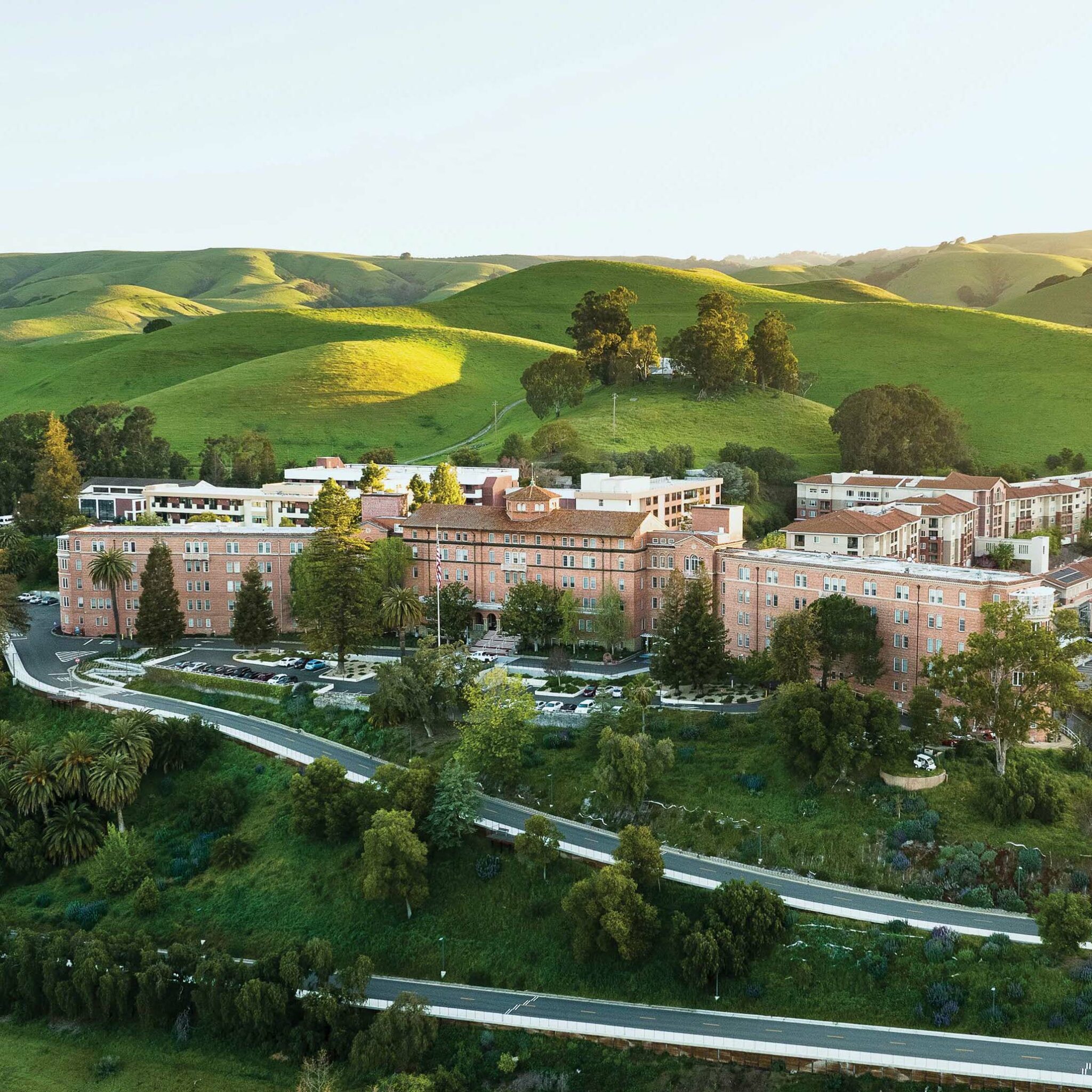
The Masonic Homes of California: 125 Years and Still Growing
This June, the Masonic Homes of California celebrates its sesquicentennial—and reflects on its next chapter of life.
Though Ye Olde Cup & Ball Lodge № 880 is less than a year old, the affinity lodge for Mason-magicians is already steeped in history. Take its namesake: the cups-and-balls routine is one of the oldest tricks in the magic book, with roots dating back to ancient Greece. Then there’s the lodge itself, housed within the illustrious Hollywood conjurors clubhouse the Magic Castle, which for 60 years has been a proving ground for world-class magic acts including David Copperfield and Siegfried and Roy.
The 18-member lodge is making some history of its own, too—as California’s first “affinity” lodge, and by all accounts the world’s first Masonic lodge specifically designed for magicians. Unlike, say, that silver coin behind your ear, the concept didn’t materialize from thin air. Another club, the Invisible Lodge International, has existed for 70 years to bring Mason magicians together for conventions held all around the world. Unlike that group, however, Ye Olde Cup & Ball is a true lodge, with a formal charter issued last October, plus monthly, tiled meetings and candidates who progress through the craft degrees.
As might be expected, lodge meetings at Ye Olde Cup & Ball toe the line between traditional and not. “Magicians are naturally eclectic people,” says Robert Pepple, an attorney who doubles as a magician, balloon artist, and lodge secretary. “We’ve done a good job demonstrating that this experiment can be done properly when you have a focus that’s not just on Masonry.”
For all the group’s invocation of the supernatural, Ye Olde Cup & Ball’s members are also dedicated to putting their powers to good use in this realm. In addition to its regular lodge activities, the lodge is planning to put on magic performances and workshops to benefit the Masonic youth orders. David Benitez, the senior warden of the lodge, recently staged one of his shows for the senior residents of the Masonic Homes in Union City—a template the lodge hopes to replicate in the future. Says Jonathan Dilley, the inaugural lodge master, “What better thing to unite around than magic? It’s something we all can enjoy, no matter how old we are.”
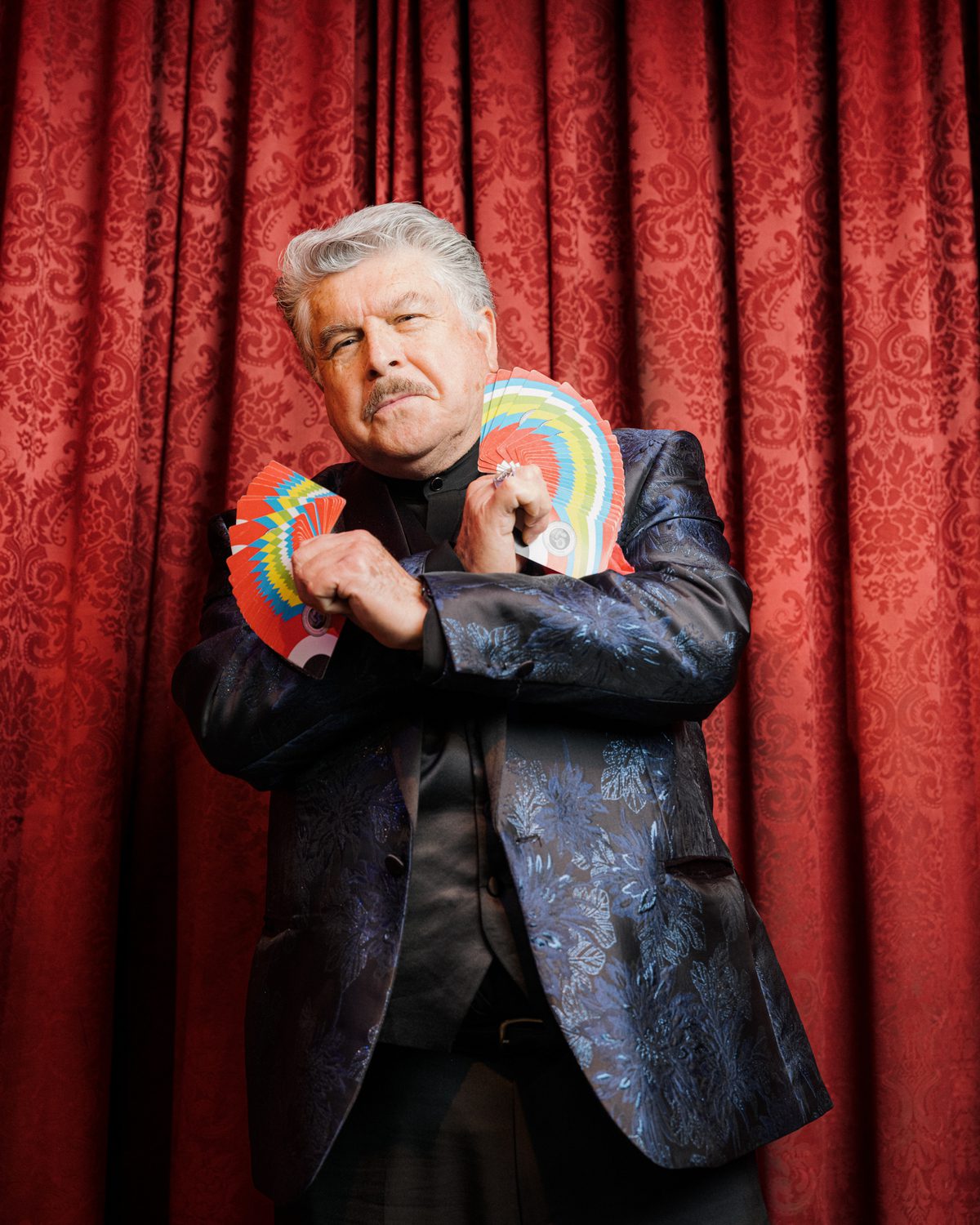
How did you come up with your stage name?
When I was young, my little brother gave me a small toolbox to protect my magic props. I fell in love with that box. And on the front of the box, it showed the brand name, Marzand. Every time I opened or closed the toolbox, I looked at the name. At that time, I was thinking of what stage name I should use, so it popped into my mind that I should use Marzand. I decided to adopt it, but with a slight change: I removed the letters Z and D and came out with the name “Marsan.” And that’s when the magic started.
You’ve done tons of magic shows in a variety of formats, including at the Orpheum Theatre and on Telemundo and Univision. How is performing live different than filming for TV?
Television shows are hard and a little more tense because you have lighting and cameras with different angles to cover. Angles for magicians are very important. I work together with the director and the cameraman, telling them what I’m going to do: The rabbit is coming out of the hat. When I take the hat like this, please zoom in like that.
You’ve won a few magic competitions on TV as well. How do you build an act that stands out?
If there are 20 magicians doing an audition, I have to be a little different. I presented fire through the mouth when I was doing my audition for (the long-running Telemundo series) Sábado Gigante Internacional. Another time, I presented an ice pick through the nose. But also when it comes to putting your show together, it’s about using what I learned from my late teacher, Robert Rodriguez. His headstone says, “My magic is still alive.” It’s alive through his students.
What’s the connection between magic and Masonry?
Many of the great magicians of the past were Masons: Howard Thurston, Harry Keller, Charles Carter, Harry Blackstone, Okito, Harry “Dante” Jansen, Lee Grable, John Henry Anderson, and of course Harry Houdini. We have to remember those who love this beautiful art and make so many people happy. We have to continue their legacy.
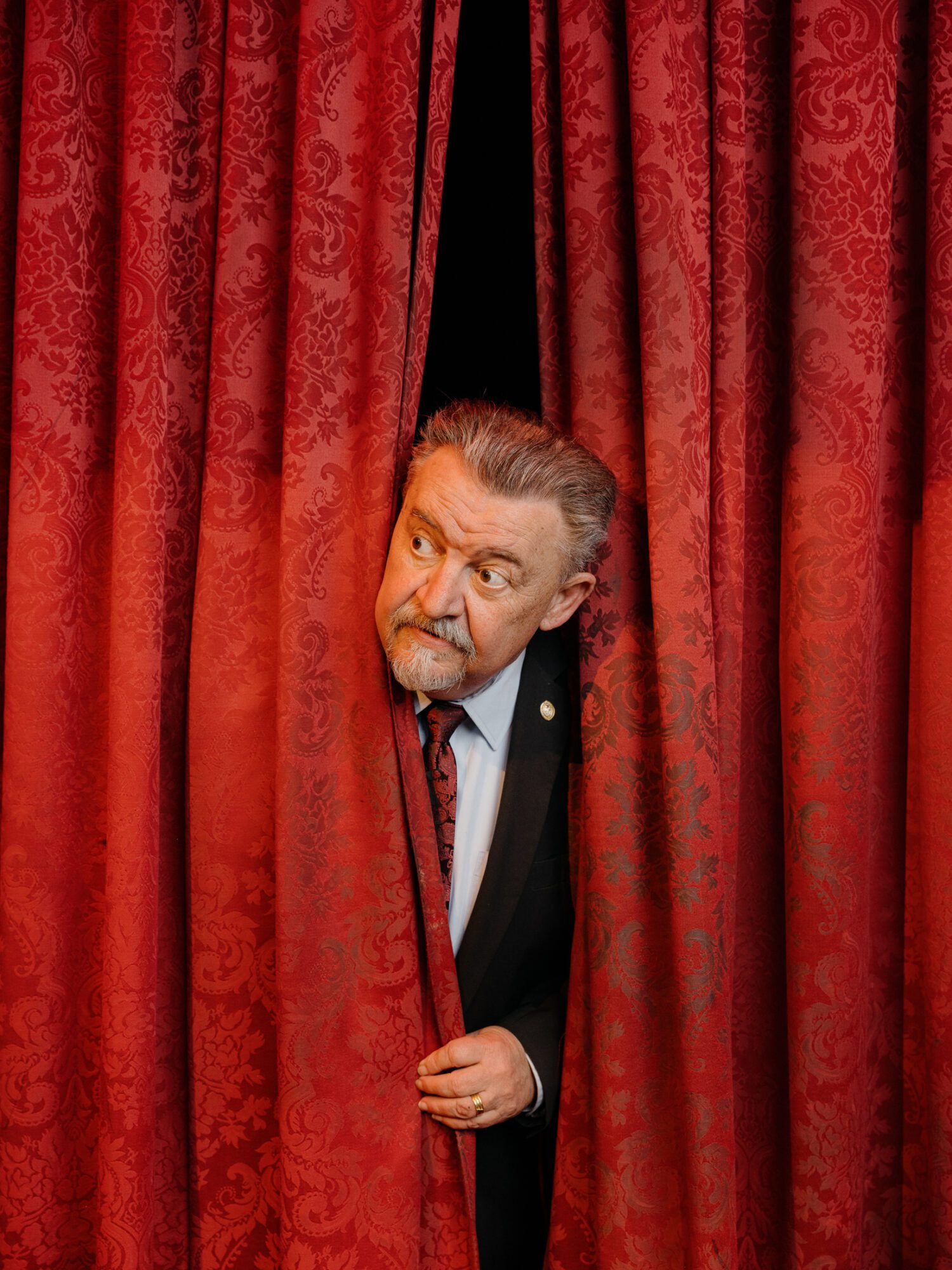
What sparked the formation of Ye Olde Cup & Ball Lodge, especially given that the Invisible Lodge was already a forum for Mason-magicians to connect?
Of course, we had that club, and lots of magicians knew one another. But it seemed like there was something more that could be had. I got a call from Assistant Grand Secretary Jordan Yelinek one day, and we talked about the 2025 plan and how it included considering smaller, more engaged lodges, along the lines of the European model. In England, for example, a large number of Masons belong to their craft lodge and an affinity lodge of Masons who share another interest. That seemed like a good fit with our Grand Lodge plan, so I explored it with a few brother magicians, and we decided to pilot the concept.
It was one of those things where all the pieces seemed to be in place at the same time. Since we were largely from Southern California, and many of us were already members of the Magic Castle, it just seemed like a natural place to gather, and it’s worked out very well.
You’ve performed magic in restaurants, at trade shows, and as the house magician at the Disneyland Hotel. Do any of those performances stand out?
There was a group called the Long Beach Mystics, and we were kind of this renegade group of young magicians who lacked adequate adult supervision. I remember one time we needed to raise some money for operations, so we decided to throw a 72-hour magic- and juggle-a-thon right on the street. At about the 71-hour mark, we moved over to have a barbecue, and to make sure the magic would be done for 72 straight hours, I stood on the seat of a Volkswagen with my upper body outside the sunroof and did linking rings all the way to the park.
What’s the connection between magic and Masonry?
I’ve heard talk about how maybe it’s the secrecy and maybe it’s the tuxedos. But I think there’s more there. Masons are independent, critical thinkers. And no one thinks more critically than a magician. They see through illusion and trickery and question appearances, just like Masons. When you see a coin vanish, a magician sees that coin being stolen away. Where a layperson sees an imperfect soul, a Mason sees a rough ashlar yearning to be honed. Magicians and Masons differ in many ways, but are very much alike in their quest for perfection.
What’s the significance of the lodge name?
The cup and ball is kind of a litmus test for magicians. It contains many different aspects of a routine: vanishing a ball, appearing a ball, making a ball penetrate cups, misdirection—it’s all there in one trick. It was done a lot at the Magic Castle as a test for potential members. The new King of England performed the cups and balls in his 1975 audition for the Magic Circle, an English magic club.
What do you get out of practicing magic?
Magic tends to open your mind up. It’s a study of human perception. Even with a single coin or a couple of cards, you realize that your perception is subjective. And then you start to realize, what else is possible? As a magician, you can even fool yourself. When you’re practicing in the mirror with certain tricks, your brain will get lost in what you’re doing. That’s a lot of the fun when you’re with a bunch of magicians. You get down to the minutiae. You know all the moves, so you start looking at other things. At the subtleties.
What’s the connection between magic and Masonry?
The types of people who end up being magicians tend to be a lot like Freemasons. They’re both performance arts. And the reasons magicians keep secrets are exactly the same reasons we keep Masonic secrets. It’s because if you don’t want to ruin it, it’s better to keep it a secret. It’s like learning the end of a movie before seeing the whole thing. It just doesn’t have the same impact on you. Knowing how a trick is done doesn’t necessarily make you enjoy it.
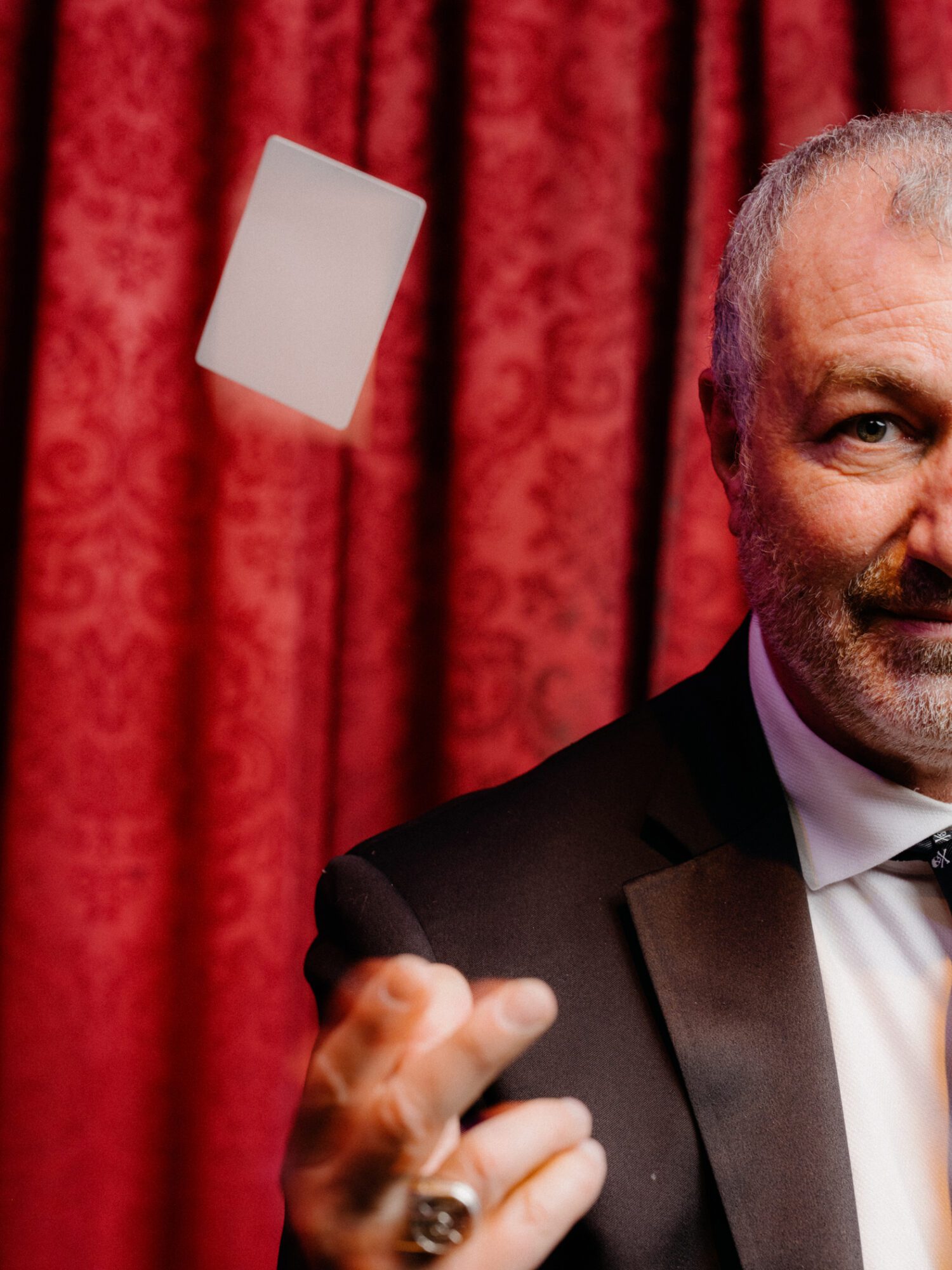
What’s special about this lodge?
It gives us a place to socialize and share stories and swap secrets. It’s funny, we’re swapping secrets inside the society with secrets. Each one of us has areas that interest us, and we workshop things if somebody’s having difficulty with a particular move. In fact, last month I performed my coin illusion, and afterward, we discussed it and then workshopped it together.
How did you get started in magic?
Growing up in Hawaii, I was enrolled in magic classes under James Yoshida, or Tengu the Magician. That seed blossomed into a lifetime love affair, and a sometimes career. As a kid, I amassed enough knowledge and props to put on my own magic shows at birthdays and parties. In about 1975, I even performed at a restaurant and shopping mall demonstrating Reiss Magic Kits, getting parents to purchase them for their kids. I continued through my high school years as the Great Fernaldo, and even supplemented my years as an executive at Capitol Records with occasional stints as a roaming magician at parties and events.
What’s the connection between magic and Masonry?
In Masonry, there are some elements that are very much a performance art, just like magic. If you’re going to be an effective magician, you’ve got to practice. If you’re going to take Masonry seriously and get the most out of it, you have to do the work. You have to learn your part.
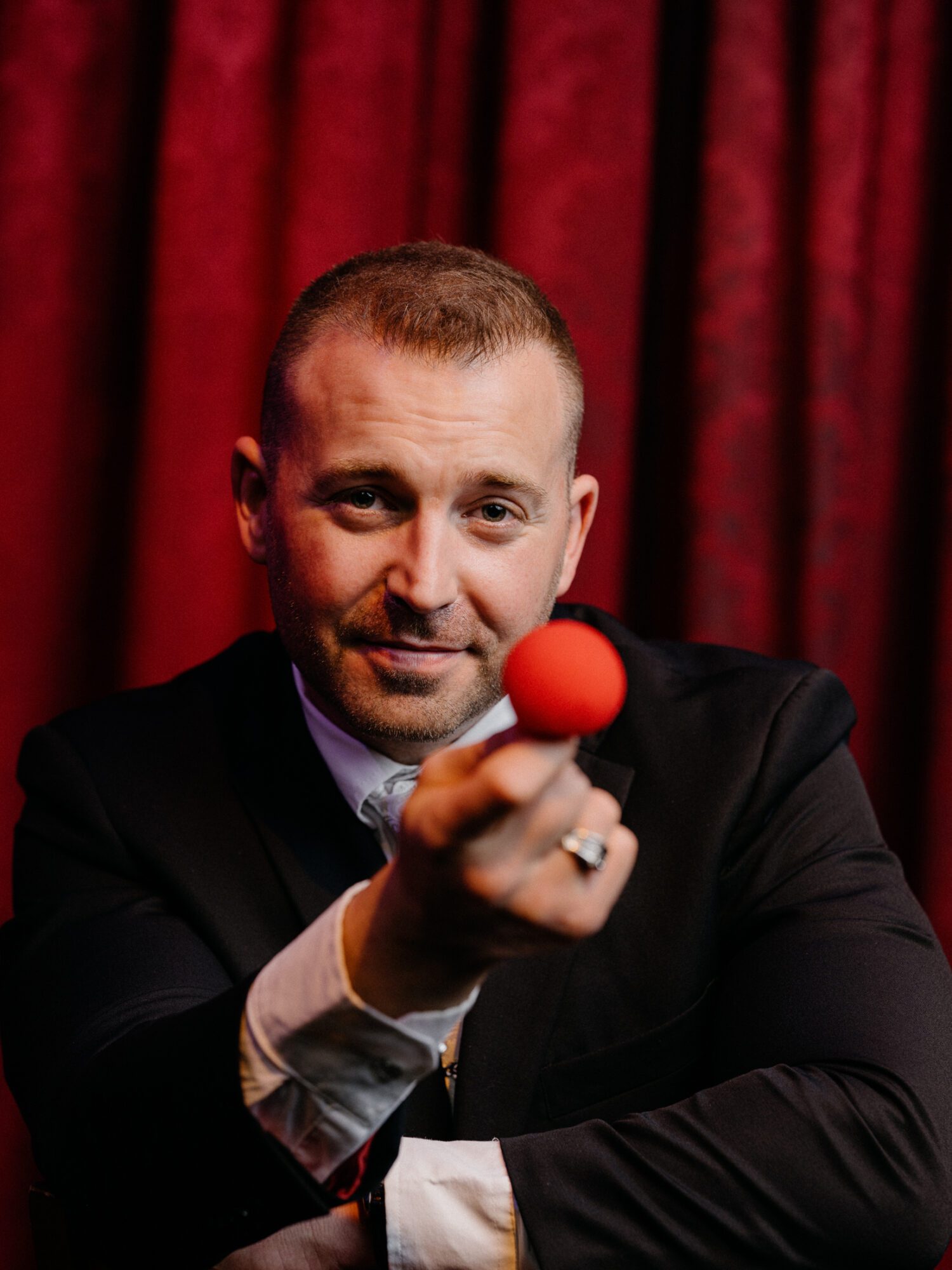
What’s Liquid Metal?
It’s a fork-bending routine. You borrow a fork and, through a series of very small, invisible moves, this fork absolutely gets destroyed. It gets twisted in the middle and then bent down so it looks like a flower. It ends up convoluted and reversed like it’s been in a black hole and it’s permanently destroyed. I’ve been banned from so many local bars. I have to come in with my own forks.
What do you get out of performing?
It’s about making people smile, making people happy. You can make someone forget about their bad day, and that’s a really rewarding experience. I also do balloon animals, tarot cards, palm reading… I officiate weddings, too. I’m like a one-stop shop. Whatever you’ve got going on, I’ve got something for it.
What’s the connection between magic and Masonry?
I think if you have a natural curiosity about the world and a natural humility about your complete ignorance as you approach each new problem and process, that type of person naturally finds fulfillment in things like Masonry and magic. It’s something that you can really append to your lapel—literally, in some cases—and say you have improved yourself in a way that can be used in service of a person or a larger community.
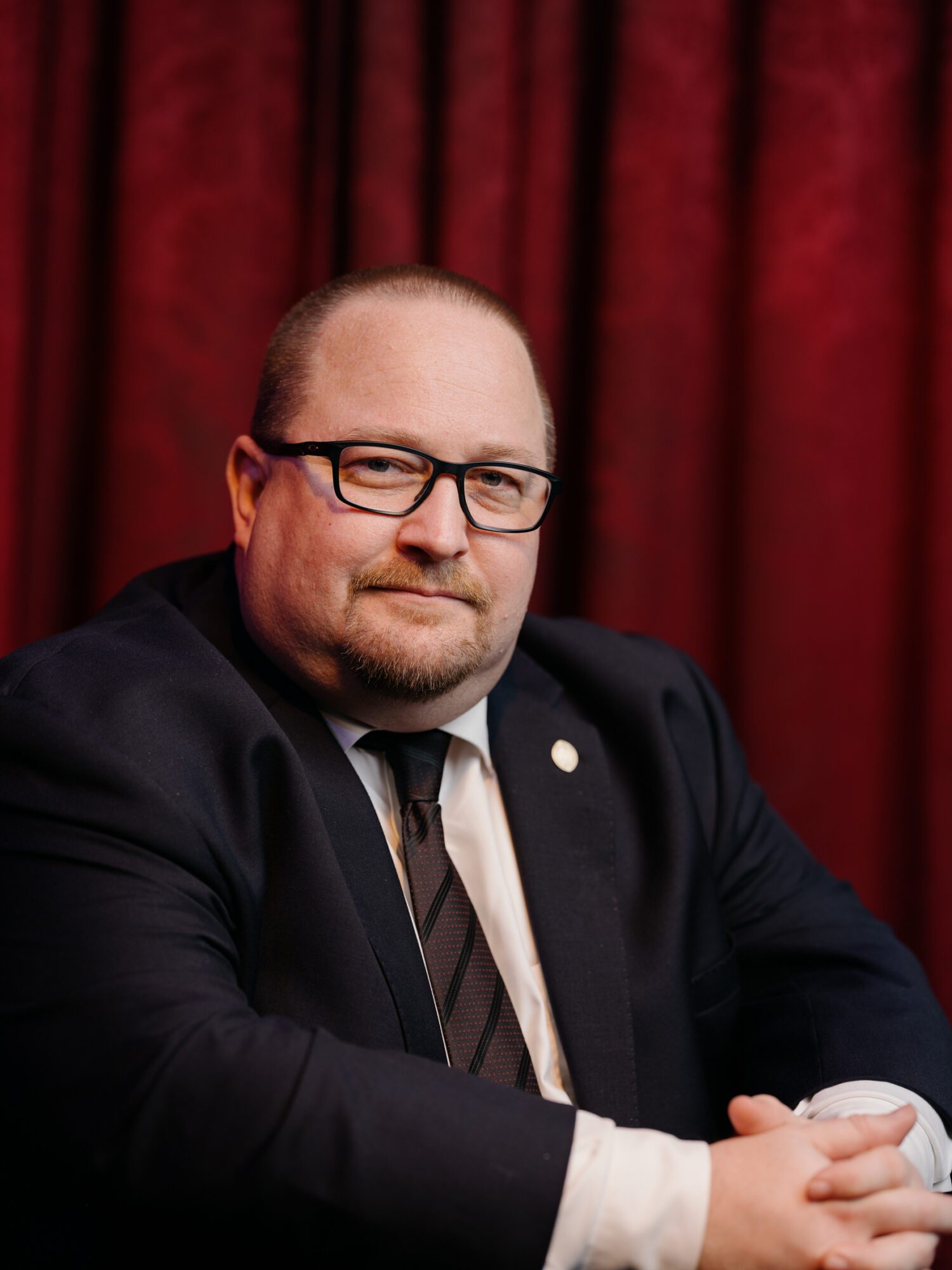
How did you get into magic?
My brother and I were at Disneyland one day, and in between rides we found the magic shop. We saw a trick called the Hot Rod. They always say never practice in front of your audience. Well, we broke that rule. We performed that trick all day in line, while we were bored out of our minds waiting. That opened my heart to the joys that come from magic, watching the reactions of those people in line.
What are some of your most memorable performances?
In college I did corporate magic, traveling all over the country to grocery stores for the Cooking Up Magic campaign. I’d be all dressed up in a tuxedo and approach random strangers. The idea was to try to get Pam cooking spray, which I used as a magic wand, into their cart. I learned a lot about people doing that. I learned a lot about being in a random location and not knowing anybody but knowing how to get around and get the things you need.
What’s the connection between magic and Masonry?
In magic, you have someone who has put years of their life into practicing one little movement that will be performed, usually for less than a minute. So they’ve spent a lifetime for one little moment. And that’s what Masons are doing in their ritual practice. But that performance is so important because of the impact it has on people to bring joy and magic to their lives. I love it.
PHOTOGRAPHY CREDIT:
Mathew Scott

This June, the Masonic Homes of California celebrates its sesquicentennial—and reflects on its next chapter of life.
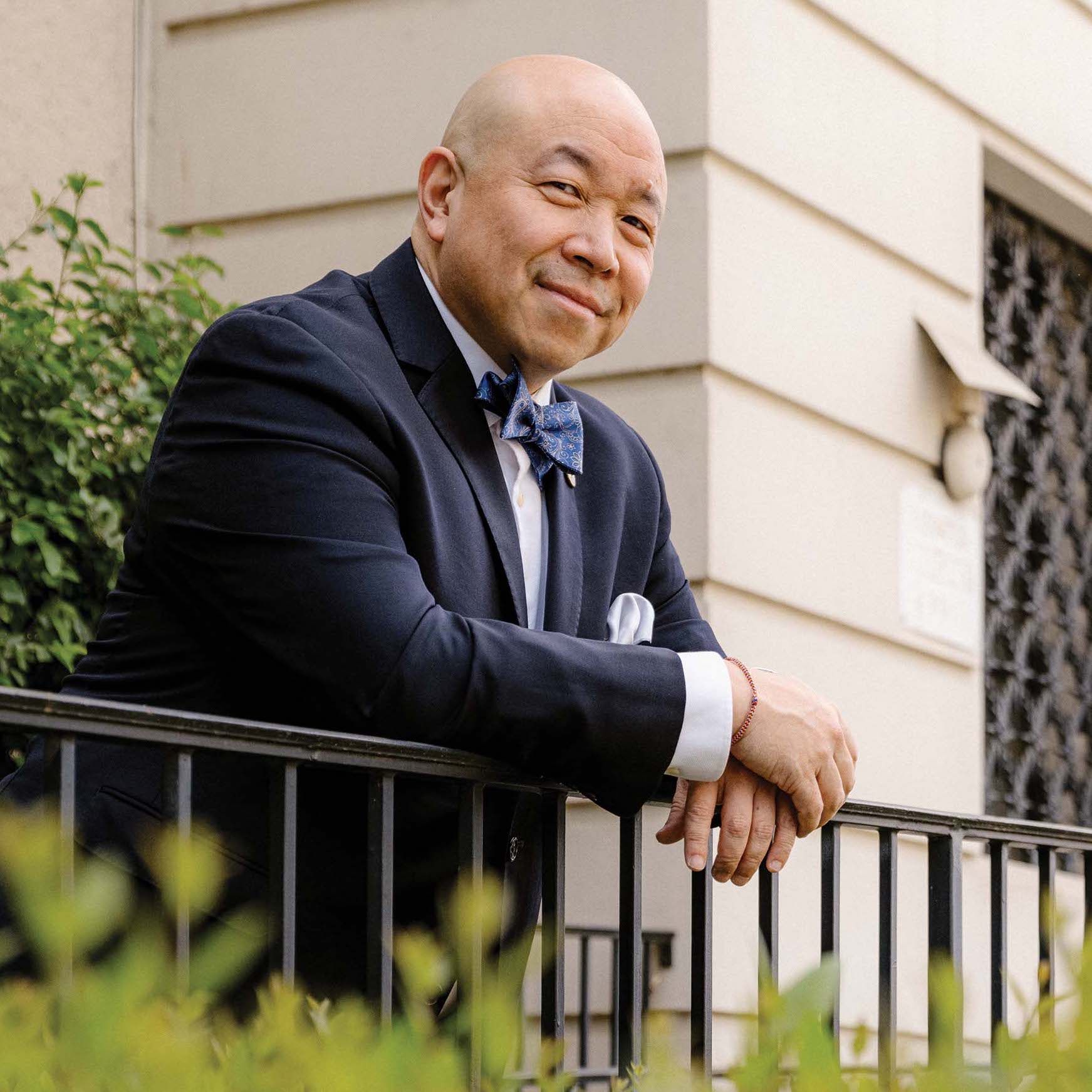
A sometimes-magician with Ye Olde Cup & Ball Lodge No. 880 on the thrill of performing and the joy of giving back.
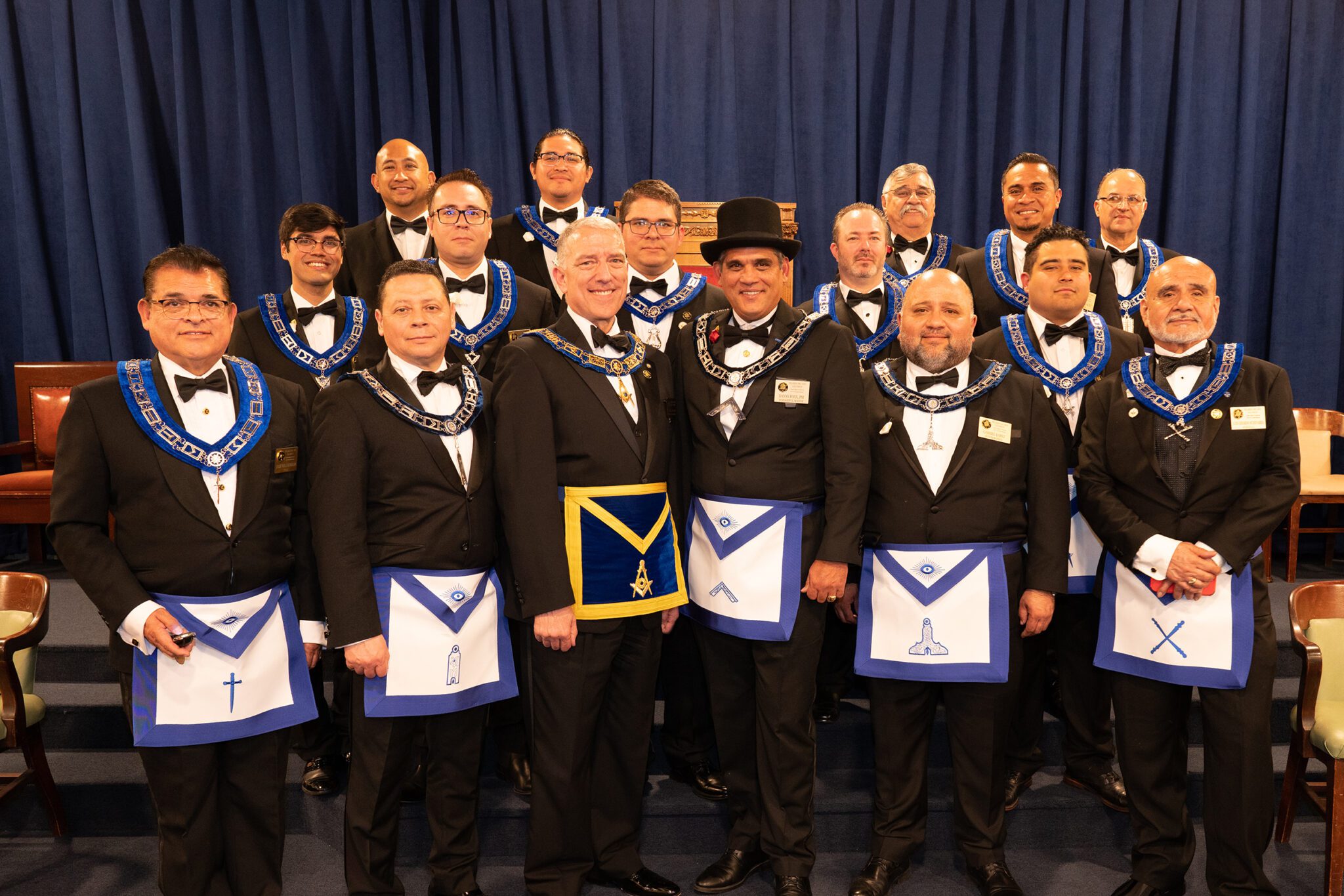
Pilares del Rey Salomon joins California’s growing ranks of Spanish-English Masonic lodges.